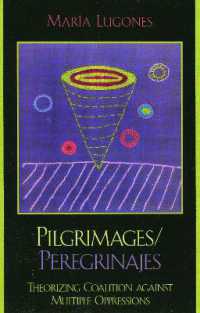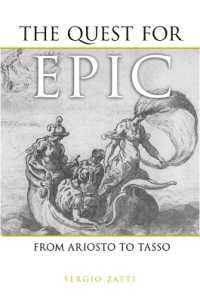Full Description
In the rapidly evolving context of contemporary Europe many citizens have previous experience of colonial, or neo-colonial, forms of domination. This raises questions about the impact of such experiences on the shaping of identities within an environment that is itself constantly evolving. How do such people see themselves and their community? How are they perceived? What effect does this have on their integration into the wider European community? This timely volume brings together a series of papers which explore such questions through the discourse relating to those people, both self- and other-generated. The originality of this book stems not only from its thematic focus but also from the multi-national, multi-disciplinary background of the contributions which offer new interpretations and analyses, in particular within a framework of post-colonial and critical discourse theory. Contributors from across Europe and North America bring perspectives from applied linguistics, language and literary studies, communication studies, sociology, and social psychology. Primary texts examined include literature, news media, film, political discourse, both written and spoken, and original interview data. Language is observed both in its usage and for its participatory role in identity formation.Three different groupings are identified for observation, namely: 1) migrant diasporas originating from the traditional areas of European colonisation in Africa and Asia; 2) citizens of newer member states of the European Union, including former Soviet satellite states like Latvia, or aspiring members, like Turkey; and 3) a number of regional groups (Irish, Welsh), whose relationship with the central government shares neo-colonial characteristics.The book is intended for all those interested in understanding the factors influencing the rapidly evolving character of Europe and its populations, and is intended to form a platform for future exploration and research in this area.







